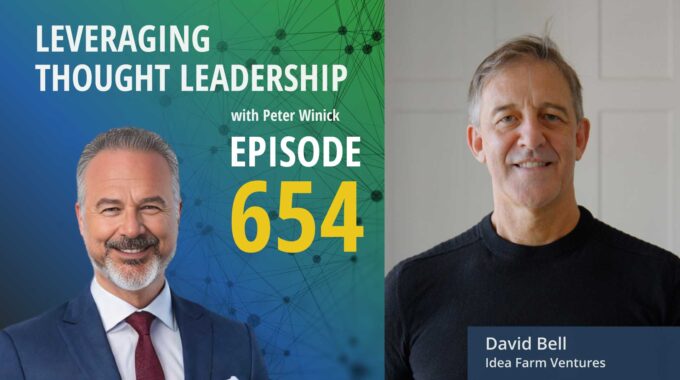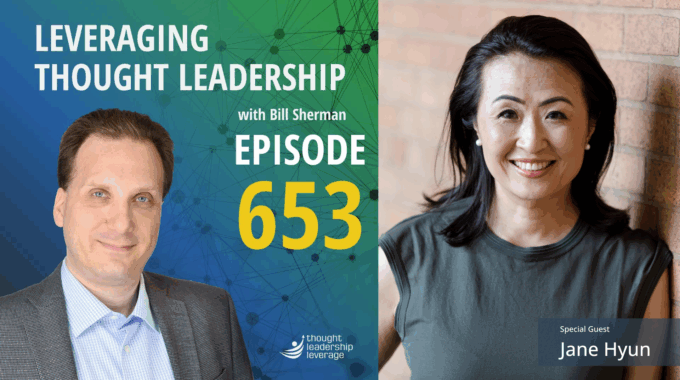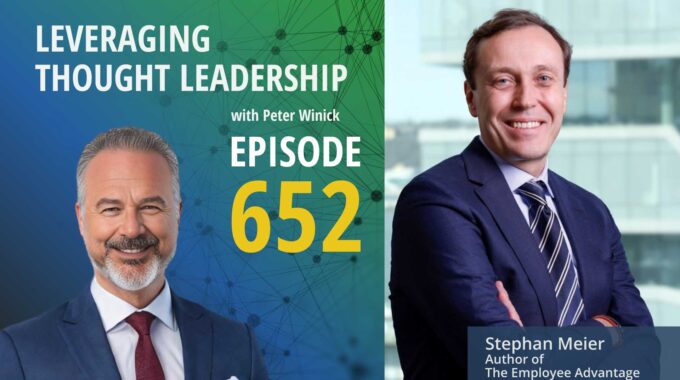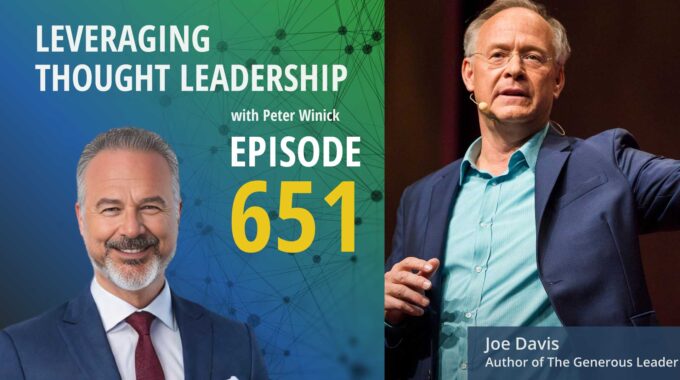Turning frameworks into funding: The hard truth about scaling thought leadership. This episode explores how…
How to Effectively Publish and Monetize Your Book | Michelle Gladieux
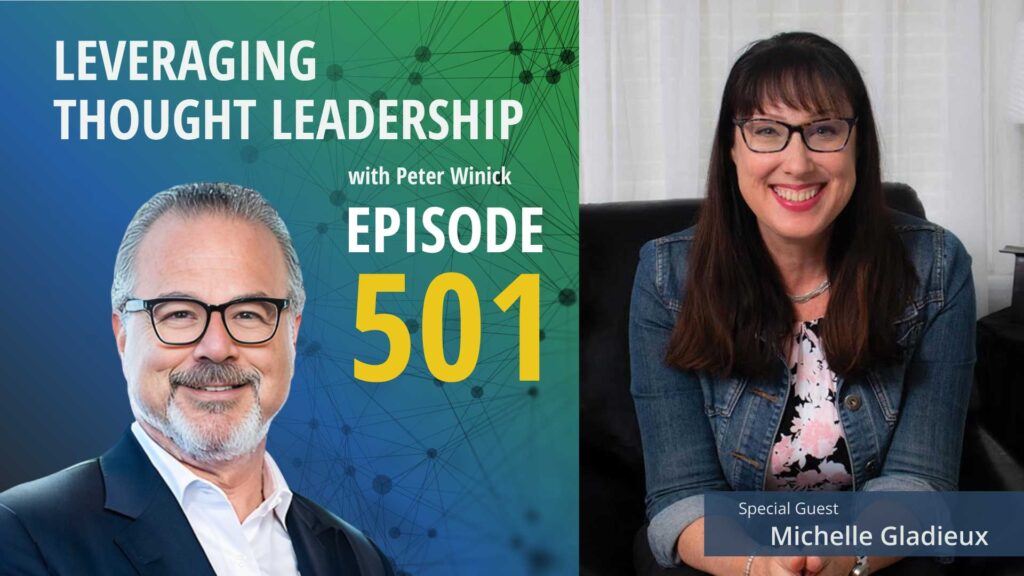
An honest appraisal of how hard it is to market a book.
An interview with Michelle Gladieux about finding her audience and getting her book into their hands.
To discuss the ins and outs of marketing to your target audience we’ve invited first time author Michelle Gladieux to join us. Michelle is the president of Gladieux Consulting, which offers one-on-one executive and employee coaching and strategic plan facilitation. Michelle’s first book is Communicate with Courage: Taking Risks to Overcome the Four Hidden Challenges.
Michelle shares how she spent four years writing her book to ensure it was ready for publication. Then, her editor suggested that she rewrite the book and focus on an overarching message that would better resonate and pull the reader in. That message would become the four hidden challenges that prevent people from becoming fearless and peerless communicators
Peter and Michelle discuss the hard task of marketing a book, and why you need to start marketing before you’re published. We learn what personal touches Michelle used to give the book legs and what experiments she has tried and is continuing to do that have a low cost but potentially high impact!
Three Key Takeaways:
- For most people making money cannot be the main driver for writing a book.
- Don’t be afraid of failure when experimenting with marketing. Some ideas might not fly, but others could go further than you might imagine.
- It is easy to fall into the trap of feeling like everyone can use your book. In order to get the best return on your investment you have to drill down deep into who your target avatar really is.
If you need a strategy to bring your thought leadership to market, Thought Leadership Leverage can assist you! Contact us for more information. In addition, we can help you implement marketing, research, and sales. Let us help you so you can devote yourself to what you do best.

Transcript
Peter Winick And welcome, welcome, welcome. This is Peter Winick. I’m the founder and CEO at Thought Leadership Leverage and you’re joining us on the podcast today, which is Leveraging Thought Leadership. And today my guest is Michelle Gladieux. She wears multiple, multiple hats, as do most. She is the author of Make It with Courage. She’s a coach. She’s a speaker trainer. She’s got a consultancy in the Midwest that’s got about ten people on it. And we’re going to dive right in. So the book is fairly recent, came out about six months ago. Welcome aboard.
Michelle Gladieux Thanks. Nice to see you again.
Peter Winick Now, this was your first book, correct?
Michelle Gladieux Yes, it may be my last.
Peter Winick But yeah, hopefully not. Right. So, yeah, it’s good to start there with. Let’s talk a little bit about sort of the behind the scenes, because now that you’re on the other side of it, you know, it’s a little bit different. It’s like the concept of being a parent versus being one raised. Give me a story.
Michelle Gladieux That I don’t know about, but I did birth a book, and I don’t mean to be sassy by saying maybe my last. But I you know, I think I made a couple neophyte new person novice errors. I spent about four years writing it, trying to make sure it was short and tight and ready for publication, and that I was hoping for timely and timeless. And I sent the full manuscript to my first choice publisher Barrett Taylor. And happily, they were interested in it, but they were interested in having me rewrite it. Fair enough, because what I had done is taken ten topics that I felt so thought leadership and subject matter expertise in and wrote to each of those topics one chapter, because that’s of course good for business as well and use in business later. They pushed back and wonderful editor even pushed me to figure out a greater overarching message something from 30,000 feet that would resonate more fully and draw readers in and through several conversations about that. He got me talking about these hidden challenges that our coaching clients run up against and how I wish they could just be a little bit further out their peripheral vision with just missing these challenges that have to do with facing fears as communicators, no matter how successful or how old or what gender or what industry. And once we got going down that, yes, there are four main usually hidden challenges. I rewrote the book, then it came out in 2022 and I’m learning now about getting legs under the book and making it, making the time to try to let others know about it. And I think I had not thought enough about that while I was writing well.
Peter Winick And that’s where I wanted to go, because most sort of authors and author communities focus a lot of their time and energy and conversations around the process, the writing of the book, and not to diminish that by in any way, shape or form because people are writing a book, it’s typically the hardest thing they do. Until that drum roll, please, they try to look at the book, which isn’t something people talk about enough, particularly early on, possibly because it would scare away a lot of people. But now that you’re on the other side of this, you’ve done a lot of the things that you’re supposed to do, working really hard, get out, you know, work social, etc., etc., but give a sense or an honest sort of appraisal of how difficult maybe it’s been to actually really get a book out into the hands of the people that you want to get it into.
Michelle Gladieux Her right around the release date. I was sending individual emails because I think that’s more powerful. Yes, I had some scripted paragraphs. But, you know, just remember a few weekends where I didn’t look up. And Friday from Friday night, Saturday morning, Sunday night, Sunday night, Monday morning, it was all about letting people who could support the book know about the book and photography for the book, and finding a publicist to help me reach audiences that otherwise I could not reach. And the cost that comes with getting some expert help, as well as asking my employees to help at their hourly rate. So I don’t think anyone should go into writing a book with the goal of making money. I think it’s possible and I hope to.
Peter Winick Let’s underline that again. Underline that again is like.
Michelle Gladieux That can’t be the main driver.
Peter Winick But let me just push on that. So if you were to define that statement by hours in energy in number of units, sold time, some marginal dollar amount per book, you’re 1,000% right. The flip side of that, a book could be the most profitable thing you ever do in your life. If you amortize that over 5 to 7 years and look at the impact it can have on your business, it’s not about number of units sold for 90.
Michelle Gladieux Good to know.
Peter Winick Yeah.
Michelle Gladieux Yes. And you could obviously be a great guy too. You are a great guy to me and to new authors and to people who have opened up a space for themselves where they might be seen as a thought leader and now how to monetize that and draw other readers in and other interested parties in. That’s your area of subject matter expertise, and I would absolutely defer to you on that. So maybe I’ll ask you, like what’s important for an author to do? They have a good book and they’re proud of the work and they have folks interested, but it’s only six months into the books birth What’s important there?
Peter Winick Yeah, so I think it’s a great question because the way, at least in my experience, sort of the publishing industrial complex is designed and that includes publishers, publishers, whatever, all good people all wanting you to be successful, all working hard is around this this weird period between, I don’t know, call it 60 days before, maybe 90 days before release date and three or four months after. After that, they’re typically on to the next thing. So they focus on like boom, opening day, right? Like, get it out, get it out, get it out.
Michelle Gladieux Launch day.
Peter Winick Yeah. It’s all a And the reality is like, listen, you know, I’m sitting in my office surrounded by hundreds, if not thousands of books. A pundit is the most ridiculous date in the world. Like it means nothing to anybody other than working backwards off of production schedule and a printing schedule. And it just like after it’s out in the universe, who cares? And I think, you know, authors and thought leaders really need to be thinking, at least in terms of a 5 to 7 year cycle of this book is just as valuable The day after it came out, a year later, three years later, five years later, to the specific type of avatar I was writing it to. So it’s not like it’s not like it gets stale because it’s a Oh, that was a brilliant idea in 2018. Now certain things, if you if you’re in technology or, you know, things do get dated. But I would argue in your space, like most spaces, yours is an evergreen book. I’ve read your book. It’s an evergreen book, which means someone should be just as comfortable and you as the business owner could get just as much value from it a year three, five from now as you would today.
Michelle Gladieux Oh, that’s great to hear. And I remember you talking about Avatar. Who is the Avatar? You’re trying to reach a picture that gets it out right about it and saw that. And you did this just last month at the BC Authors Conference. It was a wonderful workshop, and that’s the first time I had thought about that, because it’s easy to fall into the trap of, let’s see, communicating with courage. Doesn’t everybody need that? Doesn’t the 19-year-old going to college? Doesn’t the 85-year-old sticking up for himself or herself? Doesn’t that the middle-aged parent?
Peter Winick And I would say yes. But then I would say, you know, Michel, the CEO couldn’t possibly afford to effectively market to a 19 year old, an 80 year old. Like the question is, who is most valuable to you and your business? You’re in the leadership development, business training, business, executive coaching business. So through that lens, you have to say, I don’t care about the 19 year old. Now someone could buy the book, give it to their whatever, but you can’t put resources against that if it’s not aligned with your business growth objectives.
Michelle Gladieux Now.
Peter Winick Down the road, you know, yeah, maybe there’s other derivatives that you can do, etc., etc. But I think that’s a lot of the struggle that authors have, is they’re so in love with their work as they should be. They’re so proud of their work as they should be, and they know that it could be beneficial to so many people. But we would just say, Yeah, but.
Michelle Gladieux Somewhere.
Peter Winick What’s the reciprocity? Who could be most beneficial to you? Which feels like a selfish act, but it’s actually a focused act that is a CEO with limited resources, time, energy and money. You have to have that discipline.
Michelle Gladieux It makes me think of like building a fire. You’ve got to start. You’ve got to start the fire somewhere. It I just found the title of your workshop. It was How to Scale and Leverage your. Leadership beyond the book. And then I have these notes Based on what you said, one of the things you said was we’re irrelevant 99.9, 99% of the world. So let’s come to terms with that and aim well to the appropriate audience. So you’re sort of a straight talk guy also.
Peter Winick Yeah.
Michelle Gladieux I’m a straight talker. And you were telling us it’s going to be a small subset of the 8 billion people on the planet that can pick up the ideas. And then maybe from there you’ll see some more exponential growth.
Peter Winick Yeah. And I think what happens when people sort of process that at first is it’s a big blow to the ego, but it’s actually a gift, right? Because .01 percent and it’s probably not even that quite frankly of 8 billion people is a lot of people. And the trick is to be so relevant to so few that when you’re interacting with them, right. That they feel like you wrote that book just for them. Right. It feels like, you know, we all know when we go to certain, you know, certain products, certain marketing, whatever, that’s everything for everyone. Like a paper towel is a paper towel, you know, a bespoke piece of clothing or something. It was made just for you. That’s a different game.
Michelle Gladieux Bespoke. Okay. You also said looking forward to align your predictive indicators. Look at what you’re trying to achieve to the business model you like and then recognize that 70 to 80% of the work is going to be sales, marketing and distribution. Many authors struggle with that, but you cannot ignore it and be successful.
Peter Winick Yeah. Yeah.
Michelle Gladieux It’s hard to ignore it. I was surprised at how much of my day it could take. It would be nice. It would be nice if I could not be working full time. I’m blessed to be getting to promote a book, but it is something to think about. You’re probably going to need to talk to your family and look at your calendar. Yeah, and be prepared for the long haul.
Peter Winick If you’re enjoying this episode of Thought Leadership leverage, please make sure to subscribe. If you’d like to help spread the word about our podcast, please leave a five-star review at ratethispodcast.com/ltl and share it with your friends. We’re available on Apple Podcasts and on all major listening apps as well as that thoughtleadershipleverage.com/podcast.
Peter Winick I don’t think I’ve ever done a podcast where I’m defending or defending or back or I’m being quoted and then like responds, Okay, I think, I think that’s right. And I actually think and I got asked to leave a meeting at a big New York publishing house to help shall remain nameless, but their headquarters is on Sixth Avenue. You can do the math on that because they were putting stuff in front of a client. And I said, you know, you need to put a disclaimer on this. Like if you go to Disney World, there’s the sign at Space Mountain that says, if you have a back problem, you’re pregnant, or blah, blah, blah, blah, blah, you can get on this right? There needs to be. So I think there should be a disclaimer when someone publishes that said, please realize that 70 80% of the effort is going to be on marketing and you still have a day job and you still have plenty of other things to do. And unless you’re willing to accept that responsibility, you probably shouldn’t write the book.
Michelle Gladieux I made an error in judgment with my publisher, and I’m really proud to be part of their author team. I thought marketing might be handled. By somebody at the publisher.
Peter Winick Yeah. That person doesn’t work there anymore.
Michelle Gladieux That’s how it looks on TV and movies. Yeah, well, they look like they’re. But they have 50 books a year to promote. So the books that succeed are those with legs under them. And people with teams are willing to hire, help or put in the work themselves. Yes.
Peter Winick And publishers, I mean, publishers will help, but I think you need to think of them as a it’s a bonus resource. It’s the prize inside. It’s not the crackerjack. You need to be the crackerjack. And, you know, if you don’t understand what that entails, great. You know, the other thing is don’t just do what everybody else did. I mean, I’ve seen a lot of really smart people do silly things by replicating a model that, oh, this is what, you know, whatever Brené Brown did, it’s like, guess what? You’re not Brené Brown. All due respect, like, what has someone like you done? And I like one of the things that you did that was really unique that I love and you and I talked about this is those not sending canned emails to everyone in your news, you know, new newsletter. Not that that’s a horrible marketing tactic. It’s an effective marketing tactic, but you went about in a very personalized way so that when people got that from you, people know when something is mass, you know, and that’s a most of the time. But it also signals to me when you said something like that, like, wow, she sent me something like she spent it extra.
Michelle Gladieux That’s right. I did mention I did mention haven’t seen you since the seminar two years ago, but I’m hoping you’re following through with those goals. And it was a great time in Omaha. And. Yes, and good news. I have something going on. I have a book coming out. Great routine.
Peter Winick Yeah, that stands out. But I think it’s also, you know, what is it that you can do to signal to people that there’s reciprocity as well? And I think that, you know, one of the things that I love about sort of the author community has its own author community, but the author community at large is there’s not a quid pro quo, but they want to help each other so only and understand what it means. Like, oh, where are you? Oh, you’re five weeks into launch night. I remember. What can I do to, like, send me this and I can do that or, you know, like, yeah, I think.
Michelle Gladieux A review. I’ll take a picture with my face. Yeah, put it up on my social media.
Peter Winick But I think the thing is to do that consistently and build that, that equity in those relationships, because the bad way to do that is to be really lovely for like 60 days before you’re going to ask me for something before your book comes out. Right. And a lot of people do that. And the right way to do that is just like, how long does it take to just send an email, put a post on LinkedIn, promote somebody, whatever, it will come back to you times ten.
Michelle Gladieux Oh, that’s great advice. Yeah, that’s great advice. When you said, you know, also realize who you are if you don’t have a name yet, One of the things I wanted to do with this book was not have not have a title and a subtitle. Of course, I ended up with a title and a subtitle, The Courage Taking Risks to Overcome the Four Hidden Challenges. But I wanted something like Blink and they say, You’re not Malcolm Gladwell. You know, you know, you’re going to have to use more words to describe what your subject matter expertise is. And if you ever develop a following like that, then you can start writing books that have one word titles. And I was like, okay, this is a very humbling process.
Peter Winick Right. Prince had Prince had to be Prince before he became that little rapper and the artist formerly known as.
Michelle Gladieux I miss Prince.
Peter Winick I know. Don’t we all miss Prince?
Michelle Gladieux I’m so jealous. You’re new in New York City or near New York City. And now I have now a now I know someone. If I’m coming out that I can say you want to get a drink or you want to get lunch. I’m looking you up.
Peter Winick You go.
Michelle Gladieux Hey, but keynotes have started and they’re going well. And we’ve developed kind of a cycle that allows an audience member to jot some notes about what’s happening in each chapter and key components on the back cover. So now I’m experimenting with how to put ideas about what risks to take as a communicator and how to get past your fear when you are afraid to communicate. But you have a passion about something you want to say or write. How to translate that into a 45-minute, 90 minute keynote. And that’s been pretty really going pretty well. The more I do, the better, of course. And I have seen, you know, some grown executive men like wiping tears a little bit in the back. And I’ve seen a lot of people grabbing, grabbing pens and writing things down. So I’m hopeful that this that these exercises and promos, people will go try something in real life. Yeah. Because anyway.
Peter Winick You said something that I think was really important is that I’m experimenting. To me that’s a mindset, right? So the thing that you just held up, that you just held up this really cool piece of collateral to me and you told me what you’re doing and it’s like, That looks really cool. Well thought out. It’s visually designed, it’s beautiful. We might look back on that. And six months ago, that was the stupidest thing I ever did. Or it maybe.
Michelle Gladieux No.
Peter Winick No, no, no. I don’t know. I’m not saying it. Yeah, but.
Michelle Gladieux Yeah, we might.
Peter Winick Or you might look back on it and say, Oh my God, that was brilliant. That changed the trajectory of my business. But it but if you, if you don’t have the courage to think of as an experiment, which means what are experiments? The things that we do to see if something succeeds or fails. Right. And you have.
Michelle Gladieux Another just a little longer, a little bit about the gal who wrote it there. You can find it and you can with Penguin and be okay. And I, I figure, well, I send a lot of letters and I pay bills and I say, Yeah. So I thought this would be a nice little envelope sized insert. And, you know, I’m lucky enough to work with graphic and visual designers that can take your idea and make it look good after we do edit.
Peter Winick And none of those experiments are aimed at the house in terms of financial like, Well, I’m going to buy a Super Bowl at like, yeah, probably do. Yeah. Or something that’s so out there potentially offensive or whatever to the brand that it if it doesn’t you know so there’s like the downside is time energy after a little bit of money the upside is who knows because it’s really hard to predict what’s going to succeed with any form of, you know, consistency or accuracy. So you got to just keep throwing it out there. And I love that you do things in your own way, in your own style. You would send me a whole bunch of collateral and things that you do. And even though they were all different, you can tell that there’s a unified brand. It’s worked out, it’s aligned in the communication standpoint.
Michelle Gladieux So yeah, we try to keep a little soul in it and there’s usually a little rock and roll undercurrent. Yeah, something you said about how some of the costs or some of maybe the downsides of experimenting to get your thought leadership out there you named money is one of those things like time, money or whatever I would as an executive coach, I would I would offer another perspective, and that is I love to see people decide to spend money on themselves or invest in their business, invest in themselves, because it does something. A self-esteem that nothing else can. Yeah. Best investment is an investment in yourself, I believe. So I don’t sweat it. Right. Yeah. I mean, I keep. I keep hoping that more coaching clients and training clients will keep coming. And so far in the last 20 years, they keep coming. So there you got big time. We’re probably a small time. We’re pretty. Pretty small time for some of the folks you’ve maybe interviewed and worked with. But I think we have a unique angle. I have a unique angle and certainly have dedicated my life to the study of communication. And I don’t think there’s anything that makes life go better or makes it less complicated than polishing up how you communicate.
Peter Winick Yeah, 100%.
Michelle Gladieux This complicated life.
Peter Winick This has been fun. I appreciate your time and sharing the story, and I don’t think I’ve ever quoted back to on this, but that’s been fun to see that my ego got inflated, which was always.
Michelle Gladieux Oh, well, no, that’s sincere. I take notes so I can learn.
Peter Winick No, I appreciate that. Okay, great. Thank you for sharing. And thanks for spending some time with us today. Thanks for sharing.
Michelle Gladieux Keep up the work.
Peter Winick To learn more about thought leadership leverage, please visit our Web site at Thought Leadership leverage dot com to reach me directly. Feel free to email me at Peter at thoughtleadershipleverage.com and please subscribe to leveraging thought leadership on iTunes or your favorite podcast app to get your weekly episode automatically.


